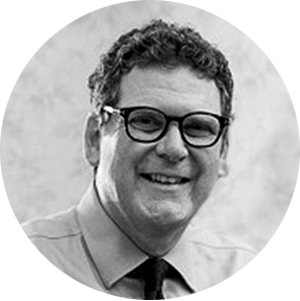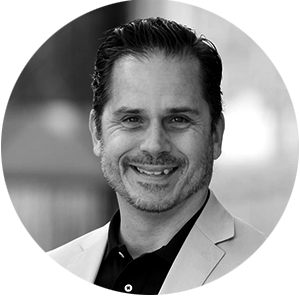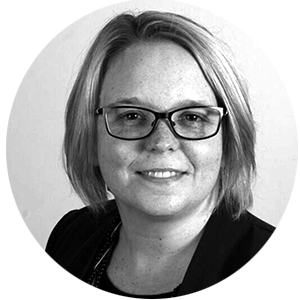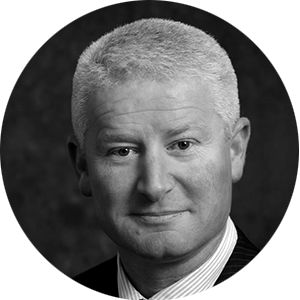25 June 2021
AUTHOR: ADAM JOYCE
> BREAKOUT STORY: Taking control of your mind to reduce anxiety
So much seems outside our control because of the pandemic – with travel plans and important milestones at risk of being thrown into disarray by an outbreak. But there are many elements of our lives that remain within our control. We talk to a range of UniSA experts about some of the steps we can take to improve our physical and mental health.

Humans have an innate desire for certainty and control. Research suggests the perception of control aids survival – providing motivation to take on a challenge.

UniSA Chair in Mental Health Nursing Professor Nicholas Procter says the desire for control over many aspects of our lives is natural.
“It’s part of the human condition to have what we call environmental mastery and to be able to make decisions – to plan,” Prof Procter says.
Individuals with a high sense of environmental mastery feel they have the resources and capacities to cope and adapt to problems, and are not overwhelmed by stress; while those with low levels are more likely to feel powerless to change aspects of their lives.
The pandemic diminished some people’s environmental mastery – with lockdowns and other restrictions on people’s lives and livelihoods, making many feel helpless and anxious.
“As far as possible, we prefer not to be in a hyperalert state, where things are completely unpredictable and completely out of our control,” Prof Procter says. “If we reduce ambiguity and uncertainty, it makes problem solving easier. If problem solving is easier, the relationships we have with each other at work and home are less complicated.”
Although the rollout of the COVID-19 vaccine will reduce the potential impact of the pandemic on Australians, mutations of the virus and vaccination rates in other countries mean the disease could affect Australians for some time.

UniSA Adjunct Associate Professor Maarten Immink says humans rely on having a sense of agency – the ability to take meaningful action – within their environment.
“As unpredictable as something like a pandemic might be, we still have agency,” Dr Immink says. “We are very much in control of our perceptions and responses for the situation. Through this agency we can seek meaning from our situation and investigate what opportunities might be presented by the situation even if these are not obvious at first.”
While routines can provide some comfort, Dr Immink says people also need to consider how being adaptive can also provide a sense of control in unpredictable situations.
“Adaptation might mean letting go of routine reactions, feelings, thoughts and behaviour for a given situation and trying something new – a new way of looking at the situation, a new way of responding,” he says.

UniSA Dean of Research Professor Jill Dorrian says working on how you interpret a situation can reduce stress.
“If we try to cognitively reappraise something that we might perceive as being a threat to being a challenge, we can reduce our levels of anxiety associated with it and we've got a better chance of being able to cope with it,” Prof Dorrian says.
“Everybody has a different threshold for the level of control that they feel comfortable with. For some, changes in their level of control can cause bigger changes in their levels of anxiety.”
Professor Nicholas Procter says humans are hardwired to be able to negotiate when things happen unexpectedly, and some level of stress is a natural part of this. Having routines creates predictability, which reduces stress.
In addition, being prepared with reliable information aids decision making, so that if your plans are disrupted by the pandemic, such as when travelling interstate, you’re better able to cope.
“Having good quality information reduces ambiguity, frustration and uncertainty,” Prof Procter says.
“You may not be able to eliminate uncertainty completely, but you can dial it down significantly to a point where it’s easier to think through options and make decisions. If things don't play out exactly as you imagined – you've done enough to be able to mitigate any adverse impacts.”
Prof Procter says while there are things we can control, such as how we spend our time or money, there are also things that we can influence – and these shouldn’t be forgotten.
“In the work setting, team culture, team spirit and team communication are things we can influence. We may not be able to directly control them, but setting up certain routine practices, and acknowledging team effort, can all be very powerful.
“It’s also important to recognise that it's not necessary to have total control and total influence. So I say in times like these – have self-compassion, go gently, go gently with yourself and how you navigate your way in the context of COVID.”
Prof Procter says there are key actions we can take that not only help provide a greater sense of control over our lives but improve our health. These include prioritising sleep, keeping active and having social contact, which can be as simple as meeting someone for lunch, walking your dog with a friend or joining a club.
Prof Jill Dorrian, an expert in sleep and chronobiology, says getting sufficient sleep has numerous benefits – and numerous disadvantages when you don’t get it.
“Without it you don't function properly,” Prof Dorrian says. “Sleep influences every aspect of our ability to function, including how we feel, how well we can regulate our mood, how fast our reaction times are, how likely we are to be involved in incidents and accidents. And so when we have a situation like a pandemic, and our routines are disrupted, and also we have these elevated levels of anxiety and stress, then our sleep is affected, and we can see the impacts that that has on us.”
How to sleep better

Prof Dorrian says there are many things people can do to improve their chances of getting a good night’s sleep. But focusing on it too much can create anxiety and potentially lead to a vicious cycle.
“I don't think we can control it but we definitely can influence it,” Prof Dorrian says. “When we're under stressful conditions, such as in a pandemic, then giving ourselves the permission to have sleep that isn't perfect, can be really helpful.
“Routine is very important – it links a bigger aspect of our physiology, which is the fact that we have these daily rhythms or circadian rhythms.’
Sleep is easiest to get at night and it’s easiest to stay awake during the day. Ideally routines should be consistent with this. Other tips include not eating large meals in the evening, maintaining exercise routines and creating an environment in bedrooms conducive to sleep.
“If we have a routine going into that sleep environment, that signals to our brain that it's time for sleep.”
A routine could include having a cup of decaffeinated tea, reading a novel for 30 minutes, brushing your teeth and putting on PJs. If you do this about the same time every night, it will help.
If you’ve tried various strategies and still struggle with sleeping well, research with shift workers suggests you can compensate for lack of sleep.
“We know that when you have chronic sleep loss, such as is the case for many shift workers, then there's an increase in the likelihood that you'll have an incident or an accident at work or while you're driving – and there's long term risks for health,” Prof Dorrian says.
A study of long-term shift workers revealed one group facing various issues with their health but another that was very healthy.
“So that's kind of surprising and we often refer to that as the healthy survivor effect,” Prof Dorrian says.
The findings indicate the ‘healthy survivors’ have developed behaviours to help them cope with lack of sleep – including systems to protect their performance, such as using lists, relying less on memory and having a work colleague double check their work.
“And you've got other work-related strategies like shifting safety critical work to points in the workday when you're likely to be more alert.”
A lot of people tend to socially withdraw when they're sleepy, while people who cope well with shift work tend to use social networks, express their emotions and use those relationships as a support and coping mechanism. Pets may also help.
Another tactic is strategic use of caffeine.
“Try not to drink coffee within four hours of bedtime. And use it only when you need it, so you don't develop a tolerance. Some people like to use caffeine in conjunction with a nap – a ‘caffnap’. So you have a quick coffee, and then you sleep for 20 minutes. And by the time you wake up, you've got the benefit of the coffee, because it's kicked in. It's gone into your bloodstream. And you’ve got the nap.”
Sleep, diet, exercise, work and health are all interconnected.
“Improvements in any area should help in others. If you want the biggest bang for your buck, working on all of them is probably going to be the most helpful.”

UniSA Dean of Programs (Human Performance) Professor Jon Buckley says exercise can give people a sense of greater control.
“There are also a lot of physiological responses that occur, that influence the brain and can elevate mood, as well as all of the physical benefits in terms of reducing your risk factors for a range of chronic diseases,” he says. “If you're able to get out and exercise it’s good for bones and joints, it’s good for your heart, it improves blood flow to the brain, elevates your mood and reduces depression. So it's multifactorial.”
Strategies for making successful changes to exercise and diet

Prof Buckley says the challenge for most people is maintaining positive changes to their lifestyle.
“People tend to make very large changes very rapidly, and they're unsustainable,” he says.
“People want everything all at once – and to get fit very quickly. It takes quite some time to put weight on and it takes time to go the other way. People should introduce small changes and then build from there.”
UniSA has undertaken a number of studies helping people with weight loss. When the programs end, there’s a tendency for people to go back to their old habits and put the weight back on.
“It’s very difficult to lose weight but it's more difficult to keep it off,” Prof Buckley says. “If people are at the stage where they're wanting to make a change, it's difficult to do it on your own. It's better to engage with other people who are doing the same thing to get some social support to do it.”
Various mobile apps are available to allow people to link with others and stay motivated.
Prof Buckley suggests writing down modest goals and sticking them up somewhere visible.
“It might be as simple as ‘I want to walk three days a week’ or ‘I want to have three alcohol-free days a week’,” he says. “Small goals that are defined but achievable. If you're really confident, let some other people know what your goals are to aid your motivation.”
During South Australia’s lockdowns, it’s likely that physical activity levels dropped, with a lot of incidental activity such as walking to public transport or around the office not replaced.
International research found lockdowns had a negative effect on all physical activity intensity levels. Daily sitting time increased while food consumption and meal patterns tended to be more unhealthy during confinement, with only alcohol binge drinking decreasing significantly.
Prof Buckley says it was difficult to maintain regular behaviour and routines during lockdown.
Cut yourself some slack

While making healthy choices remains the best advice, Prof Dorrian says everyone needs some wriggle room.
“Cut yourself some slack … don't beat yourself up if you do have the occasional doughnut. If you feel really sleepy, that doesn't mean that you're failing in your health goals, it's your brain and body changing as a function of the situation you're in. And that's affecting your food selection.”
Professor Nicholas Procter says current data suggests the pandemic and efforts to mitigate its spread had an impact on the mental wellbeing of Australians – and there remain fluctuations in distress and anxiety.
He says support mechanisms including JobKeeper, JobSeeker supplements and the postponement of debt recovery may have helped – and with some of these initiatives being wound back, it will be interesting to see how these changes impact individual wellbeing.
While there has been a rise in the use of mental health services, there is no current evidence that COVID-19 has led to a rise in death by suicide in Australia. Another study found that levels of psychological distress in early 2021 are now similar to pre-pandemic levels after rising during 2020.
He says one of the positive things to come out of the pandemic is the increased focus on mental health, including remote access to services and additional Medicare-subsidised psychological therapy sessions.
“If we think of these things as things that support a civil society and make us a more compassionate society, that's a good thing,” Prof Procter says. “It's unfortunate that it took a combination of bushfires and COVID to get us to that point, but we are becoming much more conscious of mental health as a nation.
“We can influence the conversations that we have about mental health by normalising and destigmatising it. Do not judge, do not demonise, do not invalidate the distress of another person. Be more compassionate.”
Taking control of your mind to reduce anxiety

If you’re feeling anxious about the world, one technique that’s helped many people is a form of meditation called mindfulness. It involves focusing all your attention on what’s happening, what you’re doing and your environment – and consciously stopping your mind from wandering.
UniSA’s Dr Maarten Immink, who has undertaken a number of studies of the technique, says the essence of mindfulness is taking control of how we place attention on what is happening in the moment.
“This means that as long as we are keeping our attention placed in this moment, watching for the inevitable distraction, and then actively replacing our attention on this moment, then just about anything we do can be considered a mindfulness practice,” Dr Immink says.
For example, when brushing your teeth.
“Of course, we can get the brushing done whilst thinking about the past or the future – as is commonly done,” he says. “We get clean teeth but we lost the moment; the opportunity to watch how we actually brush our teeth.
“Brushing teeth mindfully freshens breath and mind. All it takes is having the intention to observe how we brush our teeth – how fast, how much pressure, where in the mouth, what is the movement, what is producing the movement, how does it feel, how does it taste, what am thinking as I brush? and so on – countless things to be mindful of.”
The success of mindfulness is not measured by how long you can focus on what you are doing, feeling and thinking in the moment.
“Instead, the key is to be aware of how often you become distracted from the moment and then what you do when you get distracted,” Dr Immink says. “Do you let yourself continue with distraction or actively return to experiencing this moment? It is a powerful choice, one that appears to shape brain structure and function towards a better outlook on our situations.
“Even experienced meditators get distracted in their formal mindfulness practice. They just have trained to be better at recognising when they get distracted, letting go of distraction and returning to their practice.”

Resources
Professor Nicholas Procter and the team at UniSA’s Mental Health and Suicide Prevention Research Group worked with the national suicide prevention organisation, R U OK? to update its Mateship Manual in light of Australia’s bushfire crisis and the pandemic.
The R U OK? Mateship Manual is a resource to support anyone going through a tough time, particularly those in rural areas. The manual can be downloaded for free from the R U OK? Website.
UniSA has a website with a range of resources for mindfulness.
Do you need help?
If this story raises any concerns for you, you can chat online with or call Beyond Blue on 1300 22 4636. If you’re in distress contact Lifeline on 13 11 14 or Kids Helpline on 1800 55 1800.
Further reading
Born to Choose: The Origins and Value of the Need for Control
The use of mental health services, psychological distress, loneliness, suicide, ambulance attendances and COVID-19
Mental health impact of COVID-19
You can republish this article for free, online or in print, under a Creative Commons licence, provided you follow our guidelines.




